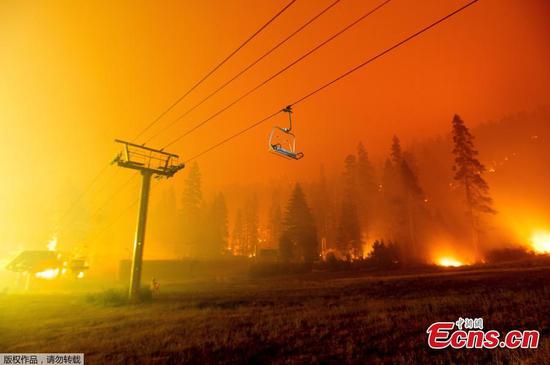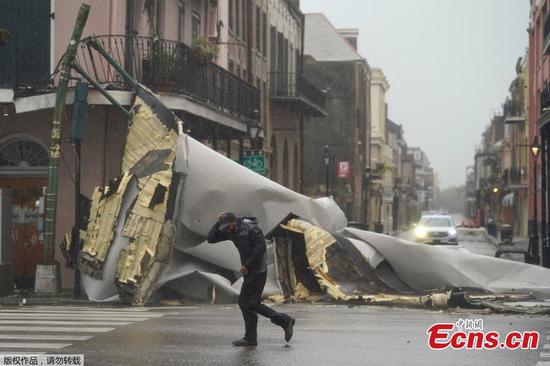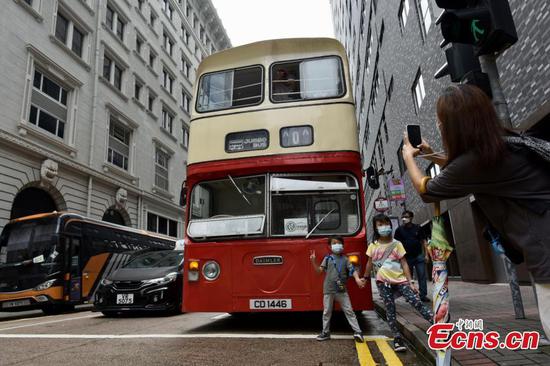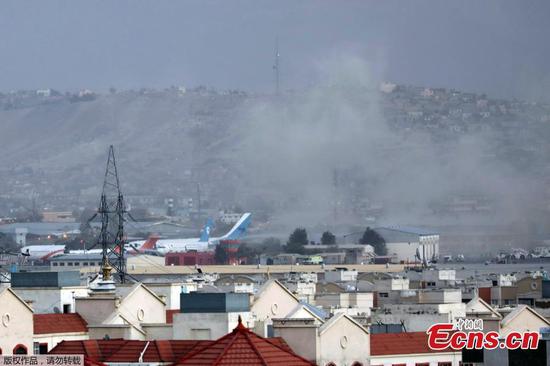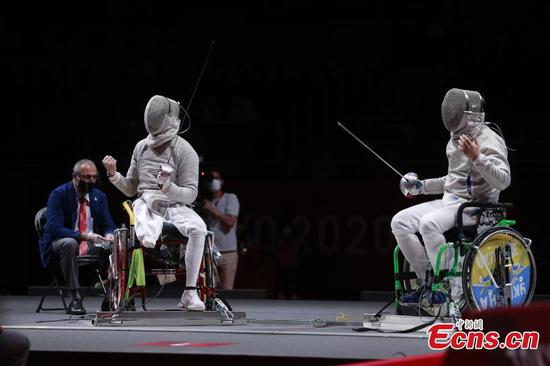U.S. President Joe Biden on Tuesday defended his decision to hastily pull U.S. troops out of Afghanistan, a mission broadly criticized by the American public.
During televised remarks delivered from the State Dining Room inside the White House, Biden spent a considerable portion of his speech praising U.S. military and diplomatic leaders for carrying out one of the largest airlift missions in history to get during its 17-day span over 120,000 people -- including over 5,500 American citizens and thousands of Afghans who once worked for the United States -- out of Afghanistan, a country torn to pieces by a U.S.-led invasion that grinded on for 20 years until its dramatic end a day ago.
Despite fraught warnings of potential terror threats -- and an actual suicide bombing that killed 13 U.S. service members and some 170 Afghans -- that engulfed the evacuation throughout, Biden declared the mission an "extraordinary success."
The president's characterization of operation "Allied Rescue" was in stark contrast with what a recent poll by the Pew Research Center has shown. Conducted on Aug. 23-29, the survey found that 42 percent of the respondents said the administration had done a poor job in the evacuation, compared to only 26 percent who considered it an excellent or good job.
Biden in his remarks said that he would "respectfully disagree" with those who criticized the pullout as disorderly and who contended that the evacuation should have begun earlier.
Again, the president faulted his predecessor, former President Donald Trump, for reaching an agreement with the Taliban that pledged the full withdrawal of U.S. and other foreign troops by May 1 if the Taliban met conditions including severing ties with terrorist groups. Biden repeatedly said the deal tied his hands when it came to making timing decisions.
Claiming that the pullout mission "still would have been very difficult and dangerous" even if it began one or two months earlier, Biden said, "There is no evacuation from the end of a war that you can run without the kinds of complexities, challenges, threats we faced."
For those Americans -- estimated by the administration at a few more than 100 -- who wanted to get out but remained stranded in Afghanistan, the president's message was that "no deadline" has been set for their eventual exodus. He pledged, however, that the United States is "committed to get them out if they want to come out."
Biden went on to tout himself, who is the fourth U.S. president to take office amid the Afghan war, as the commander-in-chief who ultimately brought U.S. military presence in the country to a long overdue finale, saying that in doing so he delivered on his campaign promise made in the 2020 election.
The president reminded the American people of the initial purpose of launching the Afghan war -- to decimate Al-Qaida and "bring to justice" its former leader Osama bin Laden who masterminded the 9/11 terror attacks on American soil in 2001.
Biden has long held the opinion that the Afghan war should have ended 10 years ago when bin Laden was killed in Pakistan in a raid by a U.S. Navy SEAL team. He reiterated that in his speech Tuesday, saying America "had no vital interests in Afghanistan other than to prevent an attack on America's homeland."
The president added "we no longer had a clear purpose in an open-ended mission in Afghanistan," which appeared to be a thinly veiled acknowledgment of the U.S. failure in rebuilding and democratizing Afghanistan.
Biden stressed the importance of being honest to the American people about what the nation wanted to achieve by invading Afghanistan in the first place. According to the Pew Research poll, 69 percent of the American public said their country mostly failed to achieve its goals in Afghanistan -- a country, now ravaged beyond quick healing, against which the U.S. Congress has never ever voted to declare war since the war started in October 2001.
It is not only the Americans who think Washington has failed. "The U.S. had withdrawn from Afghanistan after two decades of struggle, but the Americans left a mess in Afghanistan," 42-year-old Kabul resident Khoja Wahid told Xinhua on Tuesday. "The U.S. is defeated and they are badly defeated," he added.
While the U.S. military occupation in Afghanistan has ended and its diplomatic operations have been transferred to Qatar, Biden's troubles brought about by the Afghanistan debacle have just begun.
Along with mounting calls from Republicans for the president to resign or even be impeached also comes the conundrum of accommodating the tens of thousands of Afghan refugees who managed to flee their home country over which Taliban resumed control, as well as the forthcoming congressional scrutiny over the administration's handling of what turned out to be a messy withdrawal.
"I take responsibility for the decision," Biden said in his speech.














